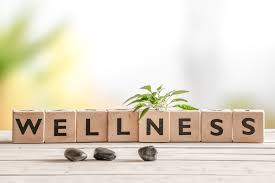The Importance of Speak Up for YourselfWhy Effective Communication Matters
- Dannielle K Pearson

- Dec 7, 2023
- 4 min read
A few years ago, I was traveling from San Francisco to Chicago; admittedly I am not one for small talk, air travel typically elicits an opportunity for me to immerse myself in a book. On the rare occasion I find myself in a talkative mood; this trip was one of those rare occasions. The couple seated next to me had dedicated their working lives to researching why marriages fail; they themselves were a married couple. They spent nearly three decades observing the behavioural patterns of thousands of couples determined to find the cause. Despite the thoroughness of their research, their findings were simple, the way couples communicated with each other acted as the single greatest determinant on whether the relationship endured or ended. While poor tact and word choices were a factor, the critical determinant was whether the couples were able to communicate their needs, wants and vulnerabilities effectively and safely. In the absence of trust and a feeling of being heard, the relationship deteriorated overtime. The life lesson I was privy to that day was just how important effective communication is and the role it plays in our relationships. While it would be easy to designate this solely to our loved ones and/or romantic entanglements, communication is at the centre of our lives, personal, professional and everything in between.
Despite the criticality of communication, I am often reminded just how quickly communication breaks down. We take for granted that we, typically, share a common language where there is an implied notion that the same words mean the same things to everyone. In my experience the same words can often lead people to entirely different places. While a picture may be worth a thousand words what is it the cost of misinterpretation? A few years ago, I read a book on consciousness, the author outlined the fluidity of a rainbow. To see a rainbow, you need three things: water droplets, light and an observer. The observers position determines the rainbow the observer sees, no two people see the same rainbow, ever. In my experience, no two people interrupt the same conversation in the same way, ever. If I am left to reflect on the research conducted by my flight mates from San Francisco to Chicago, the “interpretation disconnect” poses a problem. If marriages live and die by communication what does this mean for the other institutions that make up our lives?
Across my career, communication has been a critical skill from my early days as a Military Officer, my time in Sales, through to working with Founders and Executive Leadership Teams. I routinely read publications that outline the importance of “Strategic Communication” whether it’s communicating a Strategic Objective, a Change Management plan or something else that is concocted at the top and works its way down the chain. What I see decidedly less, is empowering and encouraging people to speak from the bottom up, to express their views, wants and needs, much like the successful married couples. To me, communication is critical in establishing where you begin and end, in relation to others. It’s about conveying your expectations, knowledge, value and what makes you, you. I once had a mentor that routinely reminded me that “we teach people how to treat us.” I see communication at the base of this, if you don’t speak up then the world will assume you are silent, and that is not the recipe for an enduring relationship. In my, there are four actions that can be taken to improve one’s ability to speak up and effectively communicate.
Have the courage to speak up.
Whether its personal or work related, we commonly seek to please others, or at very minimum, avoid rocking the boat. While being collaborative and congenial is important, trying to appease others it not. No matter where you are in an organisation or in life, we all have something valuable to contribute. If you are surrounded by people that don’t value your voice, then that is a signal that something is not right.
The same words do not mean the same thing.
I am a prolific white boarder, despite the success of MIRO and other digital tools, to me nothing is more effective than a white board and a marker. I have learned overtime that what’s in my head, is not likely where my audience has landed. Whatever your preferred medium is, identifying a tool or method that maximizes the opportunity that your audience connects in with your message is critical. Any means to visually depict what resides in your head, can be advantageous. In the absence of visuals representations, tools such as storytelling, or examples can be highly effective ways to ensure everyone is operating on the same sheet of music.
Be patient.
I recently gave a talk on critical thinking; I believe that one of the reasons we struggle to think critically is because we were never taught. I surmise the same is true for communication, we were never taught what effective communication looks like, and how to incorporate it into our daily lives. This means that your audience whether an audience of one, or many, may lack communication skills. Being patient and applying empathy can drastically improve your chances of being heard.
Practice makes perfect.
The more you speak up for yourself the easier it will become. Like anything communication is a skill. The more you “test and learn” what works best for you, and for those you are engaging with, the more effective you’ll become and more confident you’ll be doing it.





Comments